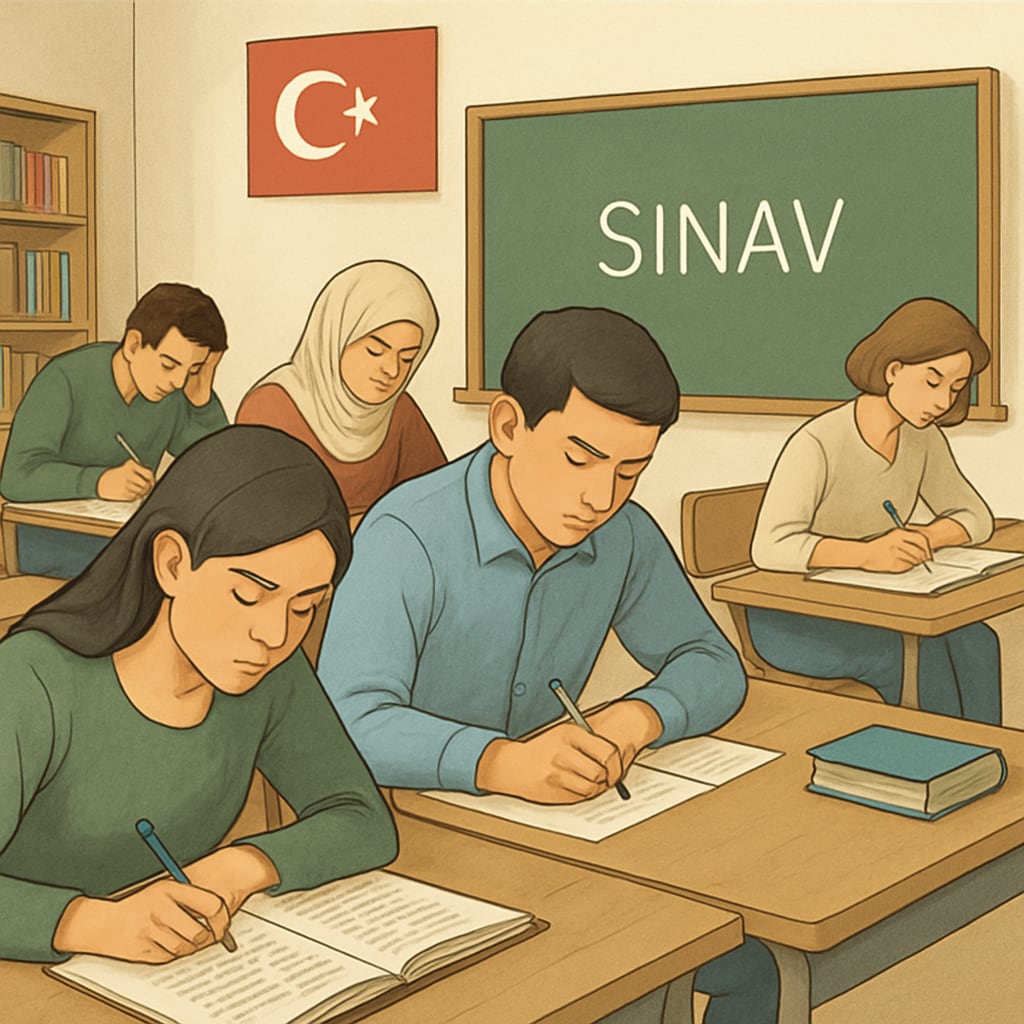Education systems have a profound impact on student motivation, creativity, and long-term success. In Turkey, the rigid and exam-driven education system prioritizes rote learning and performance on high-stakes tests. In contrast, the UK’s A Level system focuses on flexibility, allowing students to pursue their interests and develop critical thinking. This article compares these two systems, examining how Turkey’s heavy reliance on exams stifles student potential while the A Level framework fosters autonomy and passion for learning. The analysis highlights the urgent need for education reform in Turkey to create a more student-centered approach.
Turkey’s Exam-Driven System: A Barrier to Creativity
Turkey’s education system is infamous for its reliance on high-stakes exams. From middle school to university, students face a series of standardized tests that determine their academic futures. For example, the High School Entrance Exam (LGS) and the University Entrance Exam (YKS) play pivotal roles in shaping the trajectory of students’ lives. As a result, schools often prioritize test preparation over holistic education, focusing on rote memorization instead of fostering critical thinking or creativity.
This system puts immense pressure on students, leading to burnout and anxiety. According to a 2022 report on education in Turkey, students often spend hours daily in private tutoring centers to prepare for exams. However, this singular focus on scores neglects individual talents and intrinsic motivation. Students are rarely encouraged to explore their interests, which can stifle creativity and innovation—skills that are essential in the modern workforce.

The UK’s A Level Framework: A Path to Autonomy
In contrast, the UK’s A Level system offers a more flexible and personalized approach to education. Introduced at age 16, A Levels allow students to choose three to four subjects based on their interests and career aspirations. This system encourages deeper engagement with chosen disciplines, fostering both expertise and enthusiasm. Additionally, coursework and practical assessments complement final exams, providing a more balanced evaluation of student capabilities.
The A Level framework’s emphasis on choice and specialization helps develop critical thinking and problem-solving skills. For instance, students pursuing science subjects engage in hands-on experiments, while those in humanities develop analytical and research skills. These opportunities enable students to discover their passions and prepare for higher education or the workforce.
Furthermore, this system reduces the stress associated with high-stakes testing. By evaluating students through a combination of assignments, classwork, and exams, the A Level framework promotes a well-rounded educational experience. As noted by Britannica, this approach aligns with modern pedagogical practices that value creativity and adaptability.

Lessons for Turkey: The Need for Strategic Education Reform
Turkey’s education system could benefit significantly from adopting elements of the UK’s A Level framework. A shift from rigid, exam-driven practices to a more flexible, student-centered model would enhance creativity and intrinsic motivation. Such a reform could involve:
- Reducing the emphasis on high-stakes exams and incorporating alternative assessments, such as projects and portfolios.
- Allowing students to choose subjects based on their interests and career goals, similar to the A Level system.
- Investing in teacher training to promote innovative teaching methods that encourage critical thinking and problem-solving.
- Creating opportunities for experiential learning, such as internships and community projects.
These changes would not only reduce academic pressure but also prepare students for success in a rapidly changing global economy. By prioritizing flexibility and creativity, Turkey can unlock the full potential of its youth.
In conclusion, the stark differences between Turkey’s exam-driven system and the UK’s A Level framework underscore the need for education reform. While Turkey’s focus on standardized testing suppresses creativity and motivation, the UK’s flexible approach empowers students to take ownership of their education. For Turkey to foster a generation of innovative and passionate learners, it must embrace a more student-centered model that values curiosity, autonomy, and lifelong learning.
Readability guidance: This article uses concise paragraphs, clear subheadings, and lists to enhance readability. Passive voice and long sentences are minimized, ensuring an engaging and accessible reading experience.


